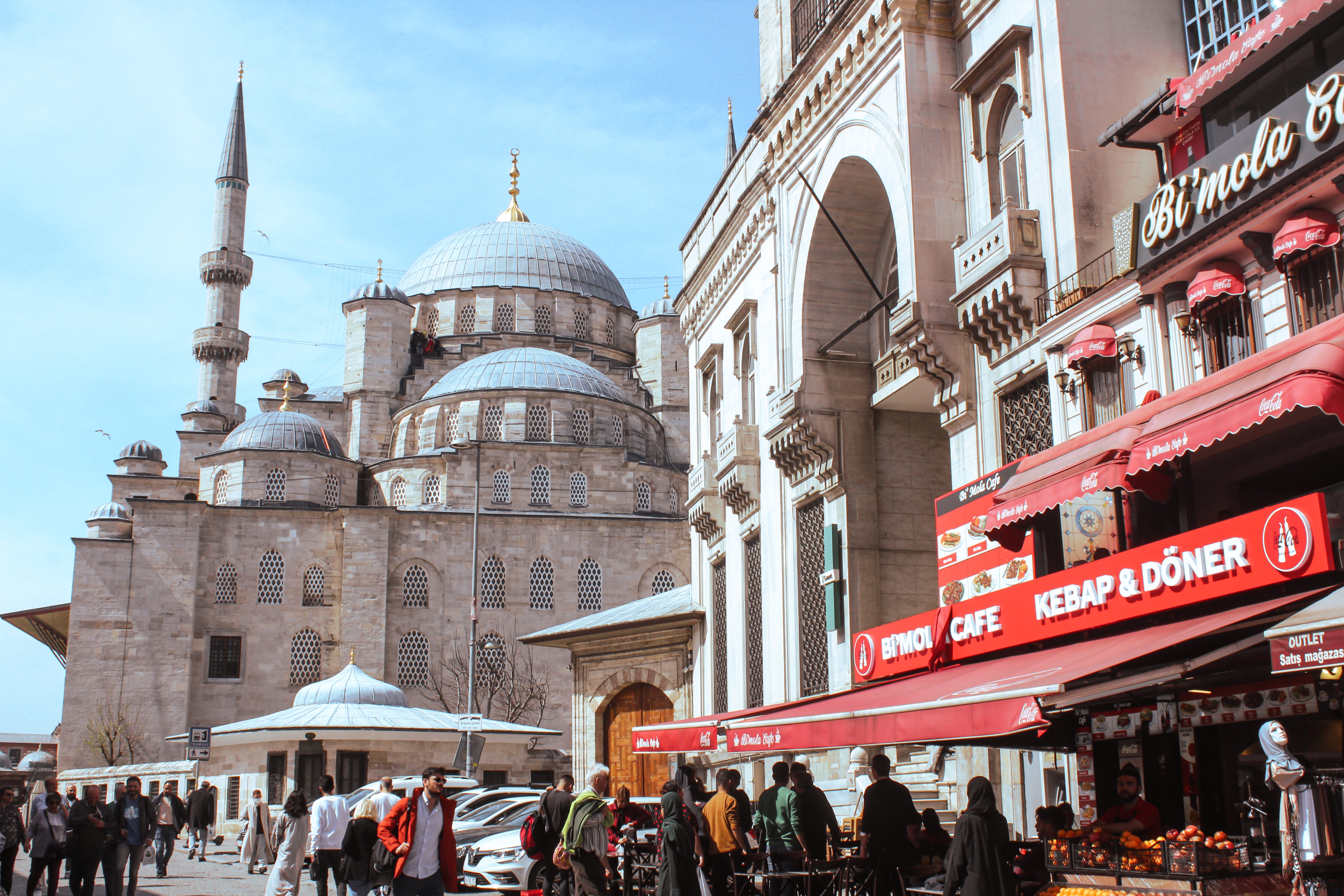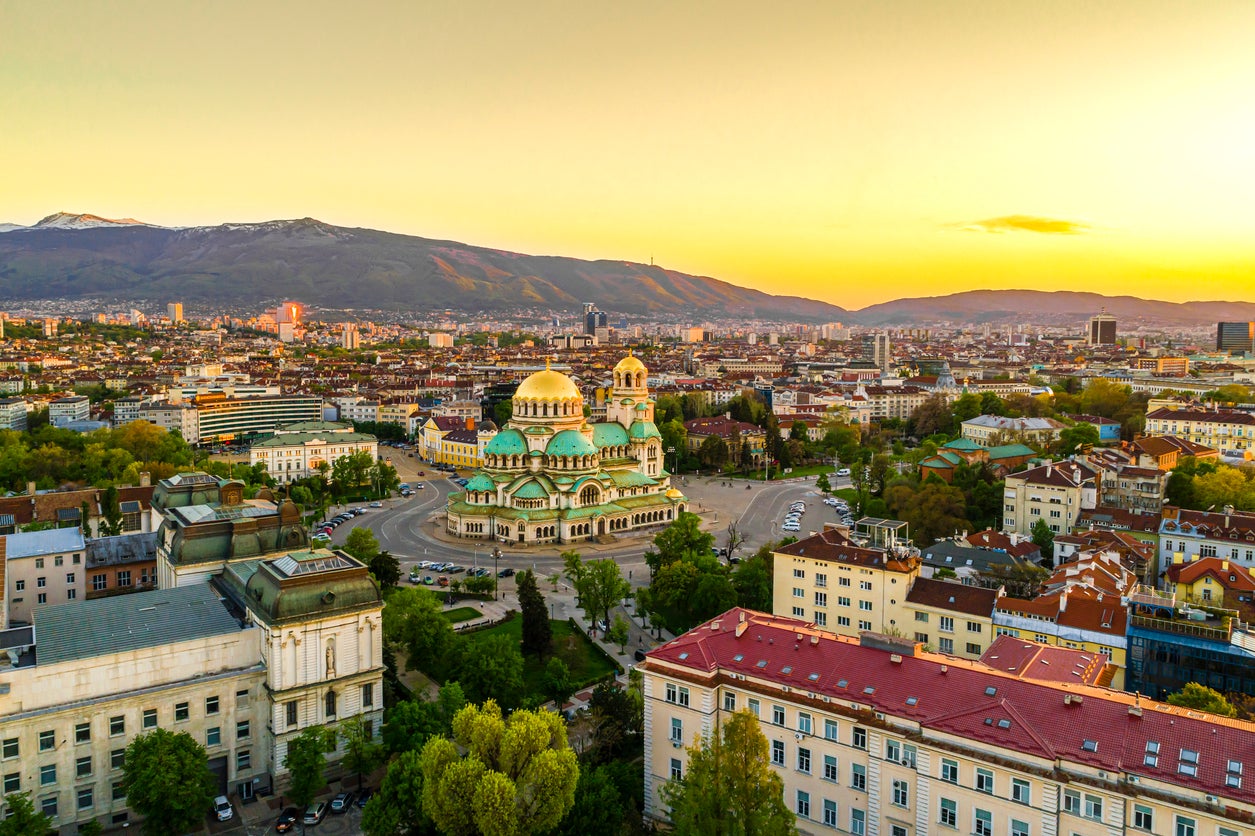All aboard the night train to Istanbul: the reality of one of the ‘world’s best’ rail journeys
SJ Armstrong takes a ride on the Bulgaria-Turkey sleeper, one of Lonely Planet’s picks for 2023’s best travel experiences

Wavering out of Sofia Central Station, the train slips past sterile post-Soviet architecture, visibly crumbling with its shattered window panes. We’re being treated to the sights of the outer city: faded green graffiti, skinny street-dogs’ gnashing jaws, a barrage of small, nondescript stations. Soon, urbanity dissipates. We’re plunging into central Bulgaria’s mountainous horizon, a blurred charcoal massif stacked with green-grey trees and impenetrable mists.
I’m on board the recently revived night train service from Sofia to Istanbul (and vice versa), which resumed in April 2022, sputtering each night across the mountainous plains of eastern Bulgaria. My hopes were high as I joined the station line, a barely legible Cyrillic scrawl from the international ticket desk confirming that I was embarking on one of Lonely Planet’s picks for 2023’s best travel experiences. With train travel’s still-booming resurgence in popularity front of mind, I had read stories from the easterly route already; stories from the first-class, private carriages. I, however, was clutching a second-class ticket (the cheapest available).

In the private berths, I’m told, there’s a fridge, a selection of snacks, even a plug socket. Down the train we make do with small bottles of water and £0.30 vending machine coffees. It’s a far cry from the luxurious image that the night train can conjure; of the resplendent decor of the Orient Express, with its decadent dining carriages and berths equipped with plush duvets.
I enter the carriage at the behest of a frazzled conductor – she waves her right hand like a pendulum, pointing at me and saying “Up, up.” I find my compartment, look right, look up, up. My bed, visibly reconstituted from a luggage rack, stands at least a foot taller than my 5ft4in frame. In a display of acrobatics I’d have assumed was beyond me, I leap and stretch from bed to bed before hoisting myself into my coffin-sized crevasse. I am soon joined in the compartment by an older Bulgarian woman, wrapped in shawls and arguing furiously with the conductors. She huffs at our other bunkmates, a young Canadian couple, and their failed attempts to access their berths, before pulling out a ladder – aha! – from under the bottom bed. Conversation is slim – the occasional “OK”, “mhm”, or irritated glare in response to my futile small-talk.
Read more on rail travel:
After the aforementioned short sightseeing stretch in the central plain, night falls and my bunkmates mutter peevishly about my insistence on watching the window.
Clambering back into my coffin berth, my attempts to sleep are fruitless. Emitting sounds that flit between jutting guttural groans and mechanical shrieks that send shivers to the end of my fingertips, the train’s resemblance to a rusting tin can is audible through the night. As it moans, it jolts from side to side, the cabin light blinking fluorescent with every sudden movement. With the aid of a thick sleeping mask and powerful earplugs, I manage briefly to drop off, only to be awoken minutes later by a blaring torch light.
The switch is more comparable to a plane than a slow train – the transitional space of eastern Bulgaria has elapsed in total darkness
Crossing the border is undeniably arduous. First, Bulgarian border guards hustle their way along the cramped hall, calling out names from a sheet. It takes an hour – an hour to tussle with the window, attempt to spot a sign of life in the black and empty stretch outside, pretend not to notice the stench of the pit toilet. It takes us an hour to exit Bulgaria, from midnight until 1am. A 15-minute reprieve, then the conductors march up and down the aisle, yelling in Bulgarian. Copying my bunkmate, I grab all of my belongings – though this is hardly challenging, given that they are gathered beneath my feet in the 5ft berth for lack of any other storage. We disembark, enter Turkey, undergo searches and exchange money. The train doesn’t begin to move again until 2.45am.
I give up on fitful sleep as the sun rises and Turkey manifests on the horizon. Communist towers have been replaced by low, earthen homes, and ornate minarets spiralling from the smallest of towns. We’ve slipped towards Asia in our sleep: whereas the Bulgarian men smoked cheap cigarettes and played chess on the station platforms, the Turkish men smoke cheap cigarettes and sipped steaming cups of tea. Burek stands and abundant bakeries have become baklava sellers and overladen trays of sweets. The switch is more comparable to a plane than a slow train – the transitional space of eastern Bulgaria has elapsed in total darkness.

The journey ends as we clatter into Istanbul for 7.30am, disembarking bleary-eyed at Halikali station two hours later than planned. My slow-travel experience felt somewhat miraculous, if cramped, cold and slow – perhaps next time I’d pay out the extra £38 for the fabled first-class, private carriage experience. But, while distinctly unglamorous, my second-class ticket carried me through rarely visited tracts of Eastern Europe, exposing a country’s inner life in the way that only train travel can, for less than a return ticket from London to Kent (and with far fewer emissions than flying). Maybe that’s enough to warrant its “best travel experience” for 2023 label, after all.
Travel essentials
How to book
It’s not possible to book your train online. Visit the international desk at Sofia Central Station to purchase a ticket. It is usually possible to secure a ticket on the day of travel, but if you want to snare a private or two-person compartment it is advisable to book a few days in advance. The train leaves at 4.40pm every day, and you’ll be able to board and find your seat around 45 minutes before the departure time.
Prices
A second-class ticket costs £16.33. To upgrade to a couchette costs an additional £8.85, or an additional £13.25 for a bed in a two-bed room. A private sleeper carriage requires a first-class ticket – £24.50 for the ticket, plus £30 sleeper supplement. Tickets can be paid in Bulgarian Lev or via card at Sofia Central Station.
Read more on The Independent’s spectacular rail trips, booking now






Join our commenting forum
Join thought-provoking conversations, follow other Independent readers and see their replies
Comments